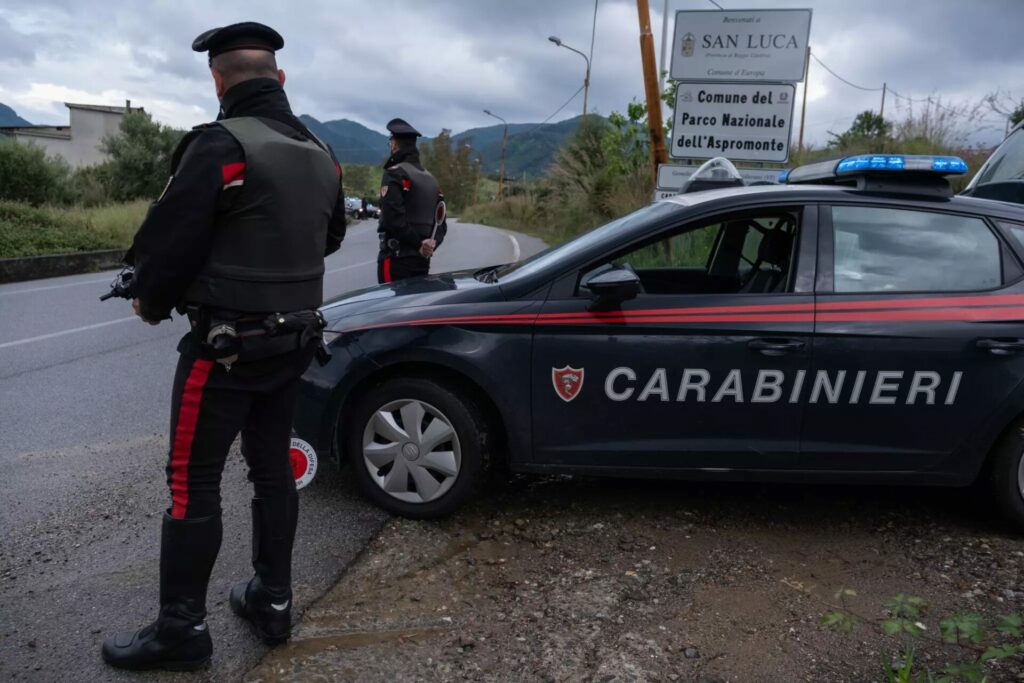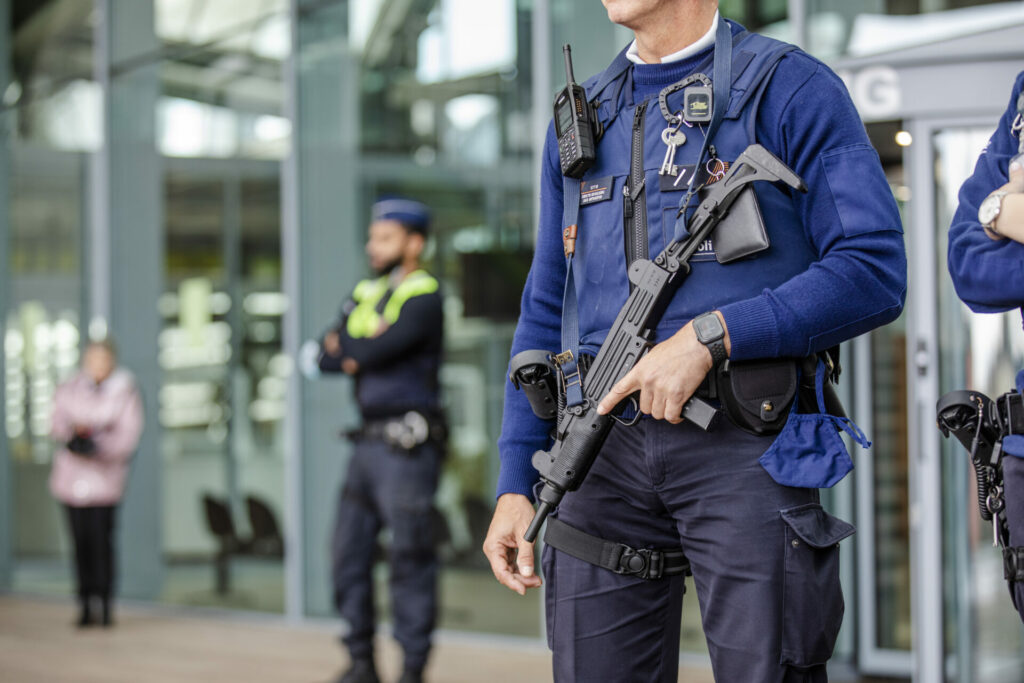Following "the largest operation ever" against Italian mafia group 'Ndrangheta in Europe, 13 people were arrested and brought to trial in the province of Limburg in Belgium.
On Wednesday morning, information from a 2013 judicial investigation in combination with data from the cracking of the Sky-ECC in March 2021 led to a major police action, in which 3,000 officers were deployed in Italy and another 1,400 in Germany.
"This is without a doubt the largest operation ever against the Calabrian mafia in Europe. This investigation, spread across Europe, was started with info from Limburg," said Eric Van Duyse of the Federal Prosecutor's Office. "It took years of preparation and intense cooperation between different services. Searches and arrests took place simultaneously in Spain, Portugal, France, Romania and Slovenia."
In total, 132 people were arrested in 150 house searches across Europe. In Belgium, 150 police officers were deployed, which resulted in 13 people being detained and brought in for questioning in the municipalities of Genk, Maasmechelen, Bilzen and Pelt – all in the Limburg province.
One of them is Lucio Aquino of the infamous family from Maasmechelen.
Providing handyman services
A European arrest warrant from Italy, requesting their extradition, is pending against six of the arrested people. Three luxury vehicles were seized, as were €20,000 in cash and several prohibited weapons. "All those involved are suspected of being members of the Italian organised crime group 'Ndrangheta," said Van Duyse.

Carabinieri in Calabria. Credit: Europol
The 'Ndrangheta is a criminal organisation from Calabria, in the south of Italy, which in recent years has outgrown the Sicilian Cosa Nostra and is among the most powerful organised crime groups in the world. The 'Ndrangheta originated in the late 18th century and according to a 2018 FBI report, the organisation has some 160 family-structured clans.
"I am not going to say that the Belgian suspects were directly part of 'Ndrangheta," Limburg Public Prosecutor Guido Vermeiren told De Morgen. "But we think they did provide handyman services. They collected funds for the transport of cocaine. To Europe, but also to Australia and Africa. The presence of the mafia in Limburg is therefore certainly not fiction."
The charge also mentions setting up cocaine labs, trafficking in cannabis and hashish and money laundering. "And all this within an organised Italian mafia structure," said Vermeiren. "The mafia tries to interweave itself with the politics and economy of the upper world. It is not so easy to work on this, because the omertà (duty of secrecy) is a code of honour in that world."

Credit: Belga/Benoit Doppagne
The authorities want to make a difference with their approach to fighting organised crime. "We invest in major investigations, which often take time, but which allow us to rise to the top of the criminal world," he said.
One of the 13 Belgian detainees is Lucio Aquino (61), the eldest brother of the infamous Maasmechelen family, which in 2014 saw nearly the entire family arrested on suspicion of large-scale drug trafficking.
Later, this led to a controversial trial surrounding the import of 24 tonnes of cocaine spread over five shipments. At the time, the Aquino family's lawyers argued that the Federal Prosecutor's Office had organised the transports themselves by using a civilian infiltrator.
In the margins of that trial, brother Silvio Aquino was kidnapped and killed in August 2015 by a Bosnian organised crime group. In April last year, the incident led to a high-profile assize trial in Tongeren, attended by almost the entire Aquino family. The trial began with the main suspect making a finger-on-the-throat gesture.
Related News
- One of Europe’s largest anti-mafia operations underway in Belgium
- Belgian former police chief (77) arrested for large-scale cocaine trafficking
"Investigations have shown that a number of prominent Italian criminals always seek refuge with the same people in Belgium," said Vermeiren. "Many of these Italian criminals are active in the Limburg hospitality industry with the aim of laundering the criminal money flows."
To stay under the radar of the authorities, suspects are often assisted by a network of family members or other members of the community, who provide them with places to stay, jobs, vehicles, telephones, meeting places and false documents. "To strengthen their position, they work closely with other organised gangs and corrupt individuals in the ports where the cocaine arrives."
If found guilty, the investigating judge in Tongeren will be tasked with sentencing the 13 suspects.

